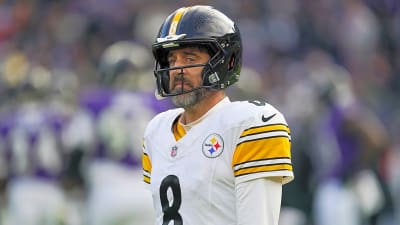As continued coverage of the Diamondbacks farm system, here at Inside the Diamondbacks we are going to do a tool-by-tool analysis and pick out the best prospects for each tool. Each tool is graded on the 20-80 scouting scale, where 50 is the major league average.
The next section is breaking balls in general, including both curveballs and sliders. The usage of breaking pitches in Major League Baseball has gone way up since the start of the Statcast Era. Once thrown roughly 25% of the time in 2015, the usage of such pitches has steadily climbed to over 30% the past two seasons. That's a trend that should continue, especially for relievers who only face a lineup once. As a result, having a quality breaking pitch is now a requirement for a prospect to have any chance of sticking in a rotation or bullpen long term.
Going into the 2024 season, these are the best breaking balls in the D-backs system:
Curveball
Yilber Diaz (60)
Diaz's best breaking pitch is a big curveball that tunnels well off his plus fastball. It's a pitch that has sharp, late break, making it his best swing-and-miss pitch. The fastball-curveball profile gives him a projected floor of an impact reliever, but the D-backs are hoping to develop him as a starter. Spending the majority of the next two seasons in the high elevation parks of Amarillo and Reno will nerf his fastball and curveball, which will force him to either develop a third pitch or end up in the bullpen.
Blake Walston (60)
Walston had the profile of a No. 3/4 starter entering the 2023 season, but his velocity and stuff backed up in Reno. Instead of what could have been a potential major league debut, he spent the entire year in the minors before getting added to the 40-man roster. Walston's curveball is a big change of pace pitch, sitting in the mid 70s, in addition to a fastball that sits 88-92 and what was once an above-average to plus changeup.
Slider
Bryce Jarvis (60)
The slider has become Jarvis' best pitch, overshadowing his changeup and a big reason why he'll likely develop into a successful major league pitcher in some capacity. Jarvis has the profile of a backend arm, where in short bursts he can throw 96-98 MPH with that slider, but the D-backs are hoping to see him develop into a starter. In his first MLB stint, opponents hit .087 against the slider with a 32.6% whiff rate but some of that can be attributed to good batted ball luck. The .171 wOBA allowed significantly outperformed the .331 xwOBA. Better command of the slider should yield better results in 2024.
Slade Cecconi (60)
Like Jarvis, Cecconi could carve out a role as a reliever with a fastball and slider combination but the D-backs have higher expectations. At the major league level, opposing batters hit .200 against the slider with the expected stats close to the actual numbers against the pitch. The pitch generated a 36% whiff rate and was an effective putaway pitch at 24% of two-strike sliders getting that third strike. The key for Cecconi to stick as a starter instead of a back of the bullpen arm will be the development of his changeup.
Landon Sims (60)
The D-backs drafted Sims as a high ceiling arm with two plus offerings, but on the mend from Tommy John surgery. His signature pitch is a two-plane slider that played up due to being able to throw an upper 90s fastball with big carry. While Arizona has used him as a starter so far, he has mostly done short outings as he slowly works his way back from surgery. If he can get his pre-surgery velocity back, he is on a short list of candidates in the organization who could close due to his bulldog mentality on the mound.
Keep an eye out for:
- Yu-Min Lin (55 Slider): Lin fits the profile of a junk-balling starter at the bottom of the rotation. His ability to command quality secondary pitches, especially the slider and the changeup, give him a good chance of sticking in a rotation.
- Caden Grice (55 Slider): Grice is a two-way player, with pitching as the primary focus. Slider is the best pitch of his arsenal, giving him the potential of a mid-rotation arm but always a floor of a left-handed reliever.
- Blake Walston (55 Slider): Walston's slider took more of a cutter-like profile in 2023, compared to the pitch that helped him take off in 2022. Getting that pitch back to where it was in 2022 would give him a quality glove-side offering and help him stick in MLB.
More must-reads:
- Merrill Kelly opts to return to Diamondbacks after a half season with Rangers
- Yankees’ fatal flaw is becoming irreparable as slow offseason wears on
- The 'AL and NL MVPs since 2000' quiz
Breaking News
Trending News
Customize Your Newsletter
 +
+
Get the latest news and rumors, customized to your favorite sports and teams. Emailed daily. Always free!








